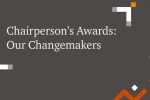
We live in a digitally interconnected world, where an unprecedented amount of data is available at the fingertips of business stakeholders. The problems we solve impact others around us, and what we communicate and the way we communicate determine the trust that others place in us. The question that most Indian businesses need to address then is this: Are we doing enough as a responsible business, and do we communicate effectively to all our stakeholders?
This concern is also reflected in the findings from PwC’s 24th Annual Global CEO Survey, where both global and Indian CEOs recognised the need for greater reporting to their stakeholders, especially in the area of the environmental impact of their businesses.
Environmental, social and governance (ESG) is about increasing the scope through which we view the performance of a company, a sector or a region. It provides a framework to assess what we accomplish as a business and the way we go about meeting our objectives. The important considerations revolve around how companies act on ESG, and the communication they build around their actions that influence the perceptions of all stakeholders. A narrative without substance or substantive action without thoughtful and well-articulated communication can both lead to a deficit of trust for companies.
ESG as a bridge to action
When we talk of taking action, the question that arises is, is it strategic or defensive? Does the business view ESG as a response to mitigate risks and address vulnerabilities or does the business recognise and develop opportunities arising from a focus on ESG?
Strategic action proactively defines the vision and purpose for the business, which then steers the transformation journey into a responsible business. A defensive approach often results in playing catch-up with the ever-evolving and dynamic ESG ecosystem, and allows external factors to influence the action and performance of the business. Again, businesses need to reflect and understand – where on the spectrum do they want to place their businesses? This will also define whether the journey a business embarks on is strategy-led, reactive or disclosure-led. There are numerous examples of new business models that have been developed to leverage the opportunities presented, as well as disruption to the business due to regulatory pressures or changing consumer preferences. We share some food for thought in this area through a discussion of the food industry.
An ESG strategy and action are the first blocks in building a responsible business and trust in society. This trust needs to be reinforced by understanding, managing and communicating about ESG performance and societal impacts, and needs to be necessarily supported by data and control systems that provide credibility to the business narrative. At a minimum, businesses need to be compliant with national and international standards and relevant regulations. This often means navigating a wide berth of guiding frameworks – some mandatory and some voluntary, and this can quickly become a complex array when businesses operate across multiple geographies, sectors, and large and complex value chains.
Building the ESG narrative
The question that arises then, is how do we choose the right framework for ESG communication, and how do we build the narrative? The driving force needs to be the objective of reinforcing trust and strengthening a business’ licence to operate and its wider social licence. While the growing number of standards, frameworks, ratings and performance disclosure platforms in the ESG ecosystem may possibly seem like too many options, it is important to understand the relevance and applicability of each, to ensure the right framework is chosen for the right communication to the right audience.
An important aspect that will eventually also impact the credibility of communication, and therefore the trust that businesses are able to build, is the quality of information available and used by the business. This is important both as an input for making better-informed decisions moving beyond traditional approaches and also as an outcome when reporting on progress made by the business on improving ESG performance. This need is also emphasised as part of PwC’s 3R framework for BRSR, that focuses on research, recalibration and reporting as critical steps in data and information collection for ESG performance disclosures. The availability of relevant and reliable information is critical for making better decisions and building transparency and trust with stakeholders.
Tax contributing to the ‘social’ in ESG
The nexus between tax and our society runs both deep and strong. In fact, strong as it may be, the bond is also as imperceptible as the air we breathe – its presence is felt more strongly by its absence!
Taxes today are not a lofty subject discussed by a few who adorn black cloaks in courts or dark suits in boardrooms. Tax has pervaded all walks of society as consumers, workers and stakeholders are keen to understand the tangible fiscal contribution made by the businesses they interact with in this ecosystem. This input goes into the choices they make. The spirit of the tax component pertaining to ESG is governed by a penchant for a progressively fair share of taxes rather than merely being taxes that fall due under the current fiscal framework. The needle has evidently moved from minimal tax to fair tax.
The linkage between taxes, society and fairness reiterates the role and impact of ESG in demonstrating commitment, taking action, and creating a strong narrative about responsible businesses. It also highlights the broad and intrinsic business functions that have linkages with the ESG ecosystem to ensure trust and transparency for the societal license to operate for businesses.
















